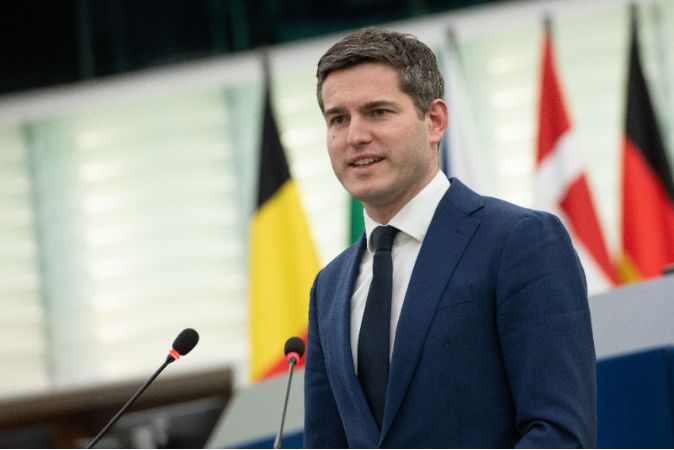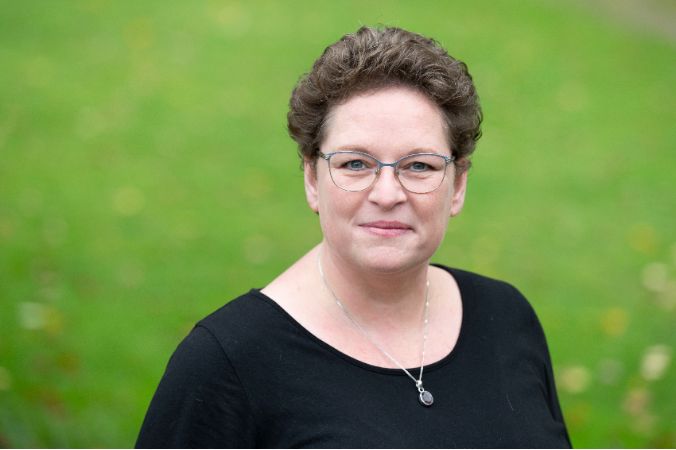Only with well-connected regions can Europe strongly emerge from this crisis, says Tom Berendsen
At a time of war on our continent and an energy crisis affecting millions of households and businesses, European connectivity is more important than ever. Good connections throughout Europe enable us to join forces and come out of this crisis strong. Strengthening regional connectivity should be the spearhead of the review of the Trans-European Transport Network (TEN-T).
With strong regional, cross border connections, regions make the most of the potential of their residents and businesses, whether this entails travel for work, education, family visits, or the transport of raw materials. The Northern Netherlands is one of those regions with great European potential. It is working hard on European solutions towards the major European challenges, for example in the field of energy transition. Due to its central location between the two large urban regions in the Netherlands and northern Germany - the Randstad and Hamburg - this area acts as an important bridge in Dutch-German cooperation. The Northern Netherlands is also the gateway to Scandinavia and the eastern borders of the EU via Germany. To untap this potential, the region needs good connections.

“An improved train connection can provide an extra incentive for the uptake of hydrogen in Europe, supported by transnational hydrogen infrastructure.”
A striking example is the planned Lely Line between Amsterdam and Groningen as part of the connection to Hamburg. A good regional train connection as a genuine alternative to the car makes it attractive for people to travel more environmentally friendly. This is how the modal shift becomes real and the region contributes to achieving our climate goals.
The railway makes it easier to work across the border and it strengthens the business climate in both border regions. This is necessary because there are great ambitions. For example, the Netherlands and Germany have recently started a cross-border hydrogen project and the Northern Netherlands is developing itself as the first European “Hydrogen Valley”. An improved train connection can provide an extra incentive for the uptake of hydrogen in Europe, supported by transnational hydrogen infrastructure.
The war in Ukraine has also put Europe on edge geopolitically. This also requires a different, strategic view of our transport system and sheds light on the importance of strengthening military rail mobility within Europe. Good access from the Netherlands towards Northern and Eastern Europe can greatly contribute to these goals.
The Northern Netherlands is one of many European regions to house all the ingredients for contributing to our important European objectives and to pull us strongly out of this crisis. It is time for the region to play this key role. This requires a strong reappraisal of the regions in the revision of the TEN-T network. A new northern rail corridor on the expanded core network brings European ambitions closer to our citizens and puts us on track towards a resilient Europe.
Tom Berendsen (NL, EPP) is a member of the Industry, Energy and Regional Development committees as well as substitute in the Transport committee.
Advocating closer integration of the Northern Netherlands into the European rail network, Nelleke Vedelaar believes better connections ensure favourable cross-border business, economic strengthening, and promotion of labour mobility.
I live three kilometres from the German border. By car, I would be there within five minutes. By train? An hour and forty five minutes. As chair of the Northern Cooperation on Mobility, I advocate for better integration of the Northern Netherlands into the European rail network. Not only because of the regional advantages, but especially because of the opportunities that an improved international connection offers the Netherlands and Europe.
These opportunities include cross border business, labour mobility and contributing to working towards the ‘modal shift’ and zero emissions.

Better rail connections between the Northern Netherlands, Scandinavia, Germany, and Eastern Europe improves connectivity between innovative regions.
Currently the Northern Netherlands are working on cross-border railway lines such as the Wunderline and the Emmen-Rheine route. A great and much needed step in the right direction. But if we want to take full advantage of these rail routes, we must align the whole Northern network. We can start those improvements today: by including the Lely Line in the TEN-T extended core network, and by including the Emmen-Rheine route in the TEN-T comprehensive network.
The Lely Line ensures a faster connection from Amsterdam to Groningen, which makes the Northern Netherlands a gateway between Western and Northern Europe. Regions such as Northern Germany, Scandinavia and Eastern Europe are better served by this ‘missing link’. The Emmen-Rheine route, and its extension the Nedersaksen Line, strengthens the cross-border network across the board.
This contributes to economic and innovative strength in Northern Europe, according to a report by research agency Prognos. Better rail connections between the Northern Netherlands, Scandinavia, Germany, and Eastern Europe improves connectivity between innovative regions. A better connection ensures a favourable cross-border business climate, economic structure strengthening, and the promotion of cross-border labour mobility.
The ultimate goal is to increase broad prosperity on both sides of the border. Moreover, our rail ambitions contribute to the EU Sustainable and Smart Mobility Strategy, for example the realisation of CO2-neutral routes of fewer than 500 kilometres. Rail transport already meets the EU’s 2030 climate targets; it is the most effective way to make the transport system achieve zero-emissions.
Nelleke Vedelaar is a regional minister for mobility of the province of Drenthe in the Netherlands and is chair of the Northern Cooperation on Mobility
Sign up to The Parliament's weekly newsletter
Every Friday our editorial team goes behind the headlines to offer insight and analysis on the key stories driving the EU agenda. Subscribe for free here.